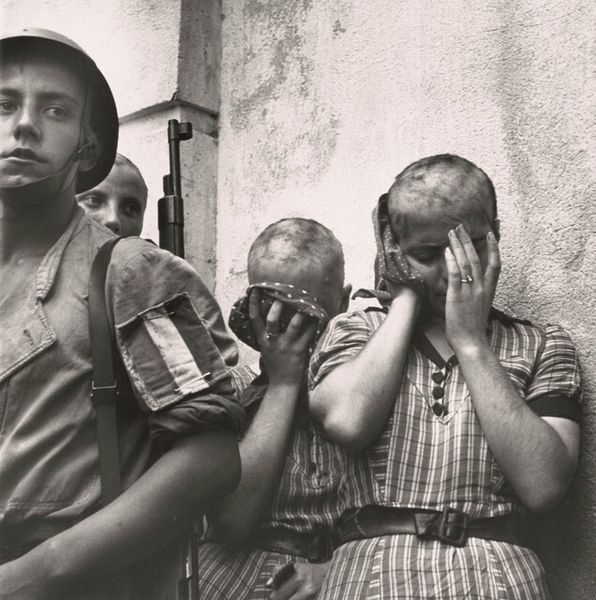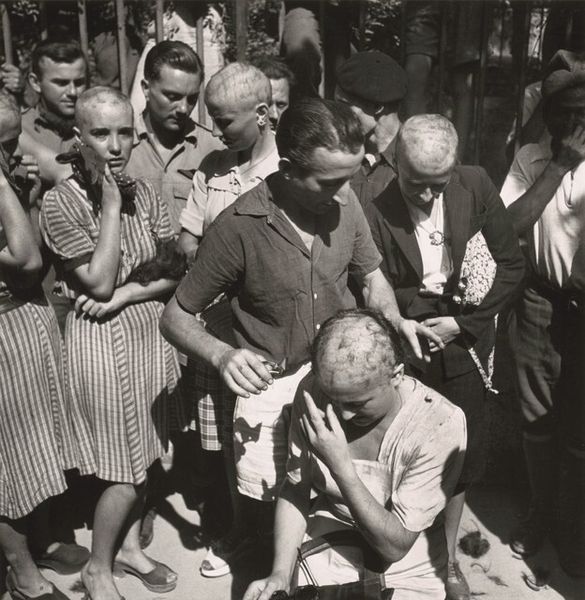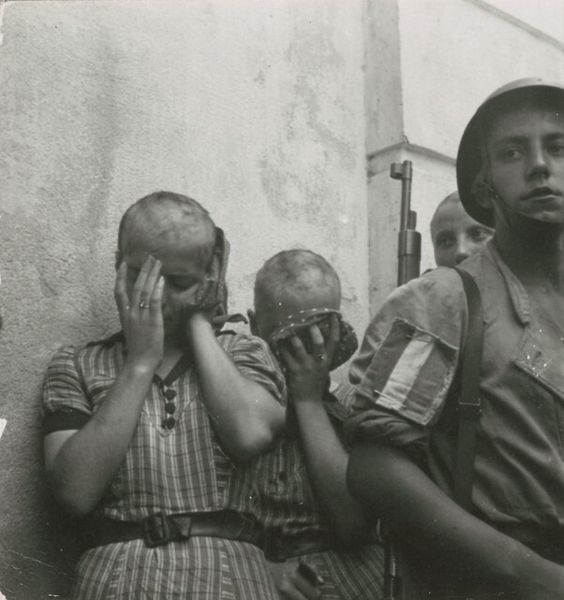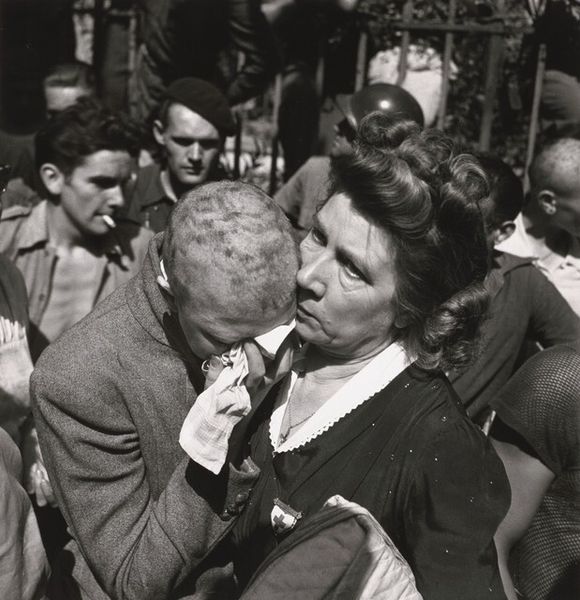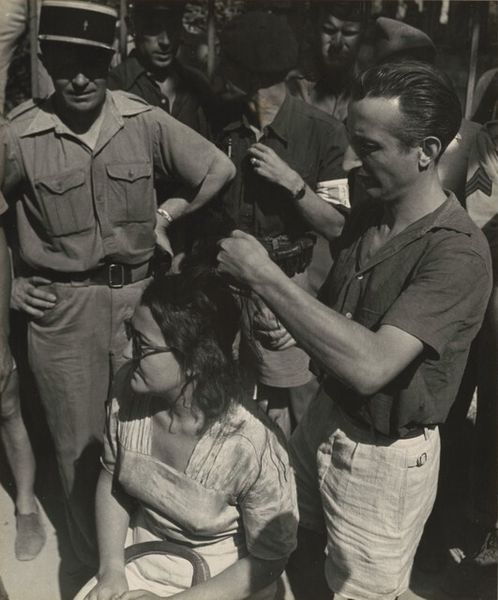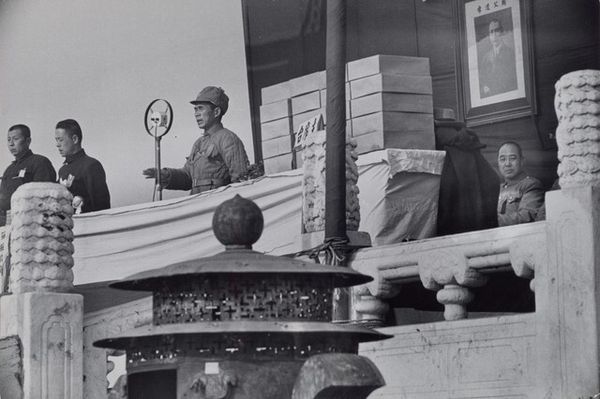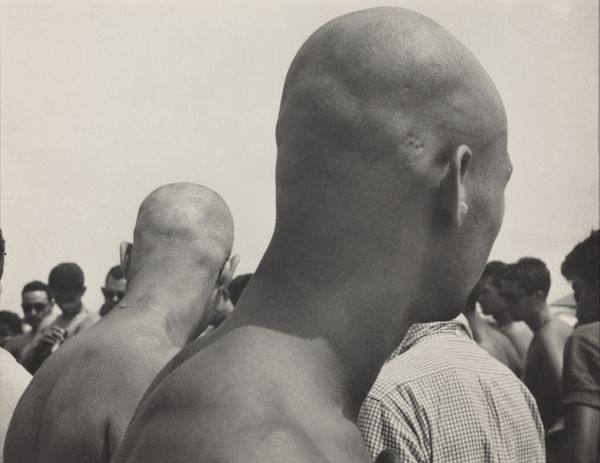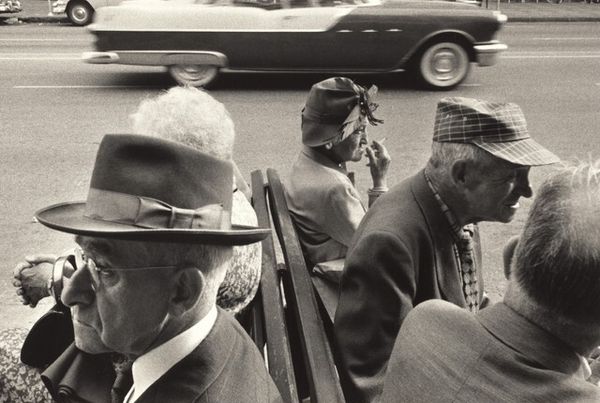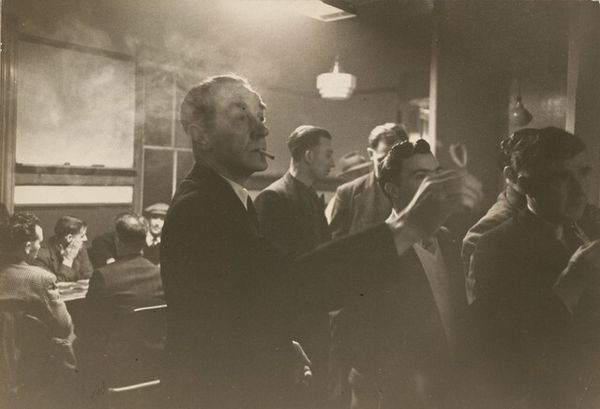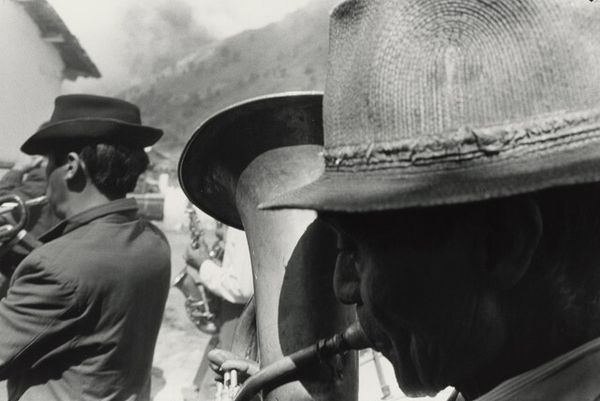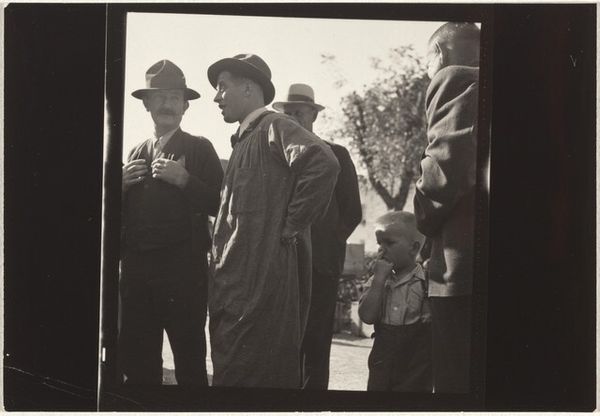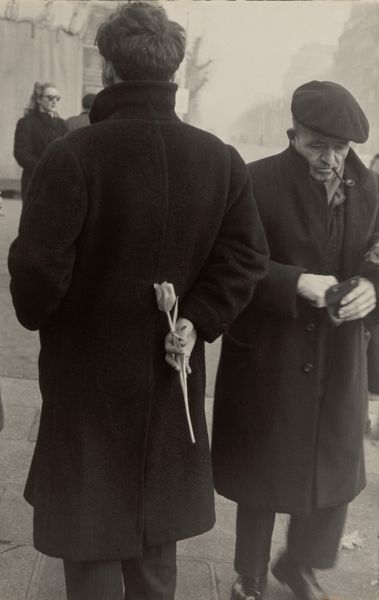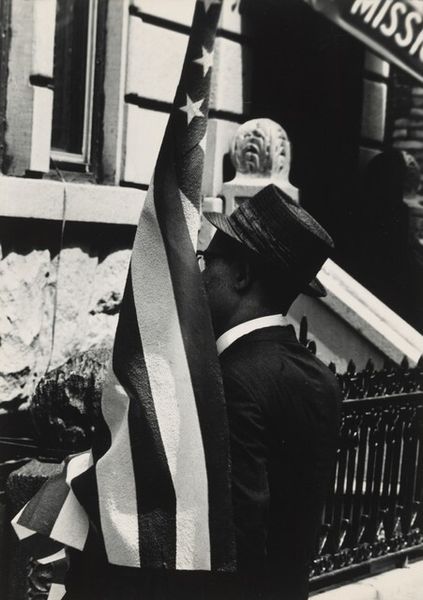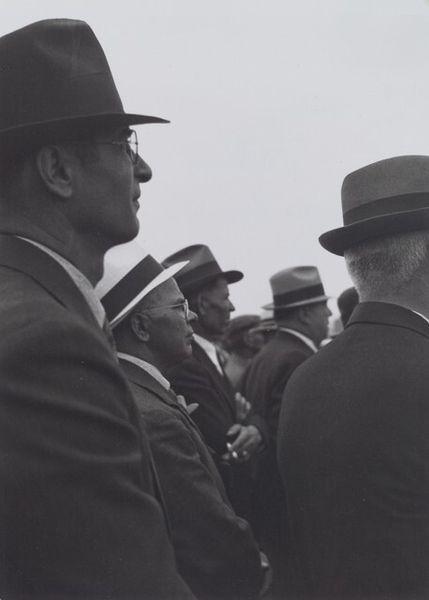
Untitled (Collaborators, St. Tropez, France) after 1944
0:00
0:00
photography, gelatin-silver-print
#
portrait
#
black and white photography
#
black and white format
#
archive photography
#
photography
#
historical photography
#
postcolonial-art
#
black and white
#
gelatin-silver-print
#
monochrome photography
Dimensions: sheet: 25.4 × 20.32 cm (10 × 8 in.) image: 19.37 × 19.05 cm (7 5/8 × 7 1/2 in.)
Copyright: National Gallery of Art: CC0 1.0
Editor: Here we have Constance Stuart Larrabee’s "Untitled (Collaborators, St. Tropez, France)," a gelatin silver print taken after 1944. The stark black and white tones create an incredibly somber mood, particularly given the close-up perspective of the distressed subject. What stands out to you from a formalist perspective? Curator: The composition is indeed striking. Note how Larrabee employs a shallow depth of field, isolating the figures from their immediate context. The sharp focus on the textures – the patterned shirt, the coarse fabric obscuring the face, even the shorn hair – invites a tactile reading. This materiality emphasizes the raw human experience. How does the restricted palette influence your reading? Editor: I think the lack of color intensifies the feeling of rawness, and also lends a timeless quality to the photograph, almost as if the emotion transcends a specific place and time. I wonder if there's something to be said for the repetition of patterns and shapes, between the checked shirt and the polka-dotted cloth. Curator: Precisely. The geometric tension created by these repeating motifs contributes to the overall visual unease. Think of structuralist interpretations of binary oppositions: order versus disorder, seen in the contrast between the crisp lines and the obscured face. Moreover, observe how the gaze is directed inwards, denying the viewer any direct access to the subject’s emotional state. Editor: So, by analyzing these formal elements – the composition, the textures, the contrast – we can start to unpack some of the deeper meaning in this work? Curator: Exactly. We move beyond a purely emotional response and delve into a systematic understanding of how these elements construct meaning within the photographic frame. Semiotics would examine how that cloth operates as a signifier, simultaneously concealing and revealing vulnerability. Editor: I see. It's much more than just a snapshot of a person crying. By looking closely at the forms, we can uncover deeper layers of meaning and intent. I never really thought of the geometric tension of a picture having so much power. Curator: It is through this meticulous attention to form and structure that we access the essence of the work and the profound power it wields.
Comments
No comments
Be the first to comment and join the conversation on the ultimate creative platform.
